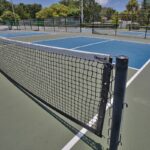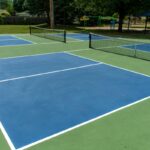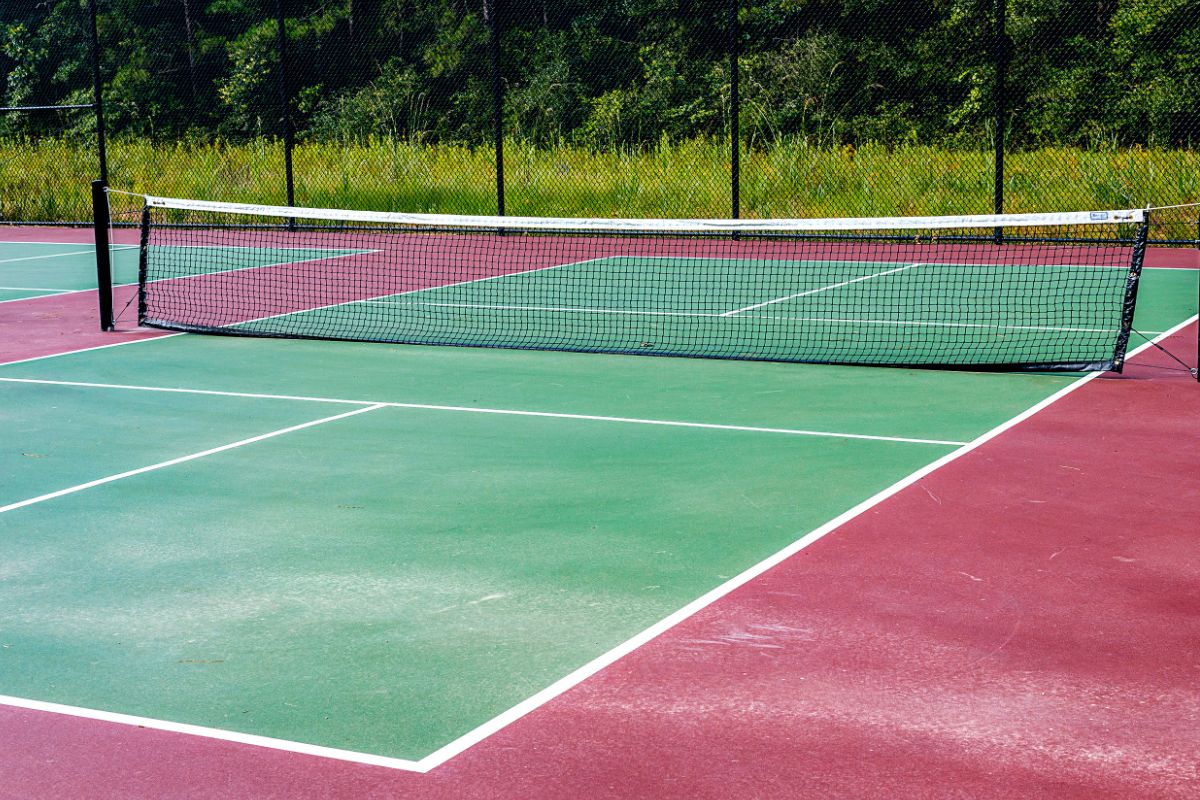There’s no denying that pickleball can get highly intense during a match, especially when you’re playing doubles and need to know where and when your partner is going to move around the court so that you are aware of who is going to return a ball, or how your partner intends to hit a serve.
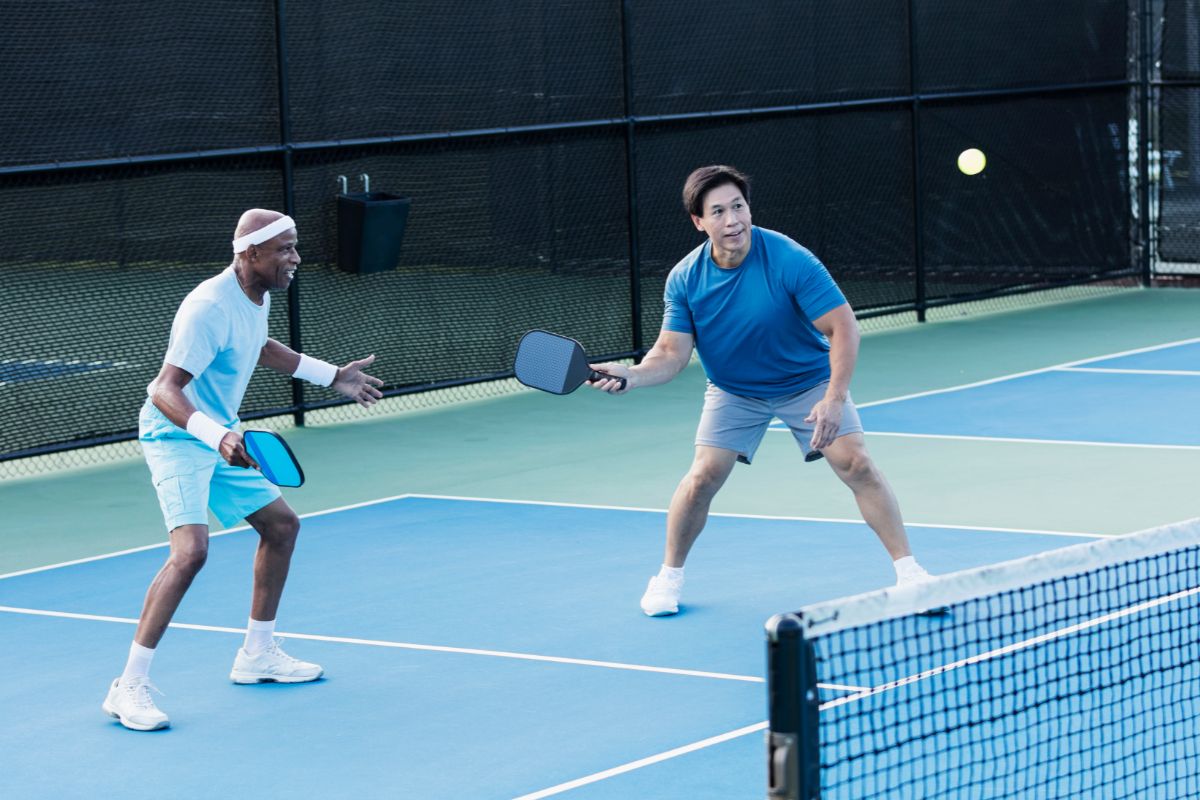
While this kind of communication is very common in many other sports, there are some particular rules and policies within pickleball that can make it a little more complex, but still incredibly useful to learn about.
So that you know what you can yell out to a partner, and when you are allowed to, we have provided a full breakdown of yelling and communication in the sport of pickleball.
Is Yelling To A Partner Allowed?
As long as a player is communicating with their partner respectfully with the intention of telling them something to assist in the team’s coordination within the game, then yelling to a partner is completely acceptable.
While it can be quite rare in pickleball compared to many other games and sports, you can still hear partners giving callouts to each other in professional doubles matches from time to time.
Where yelling crosses the line is when it is used to distract a player, whether this be towards an opponent, or even a partner.
The official rules of pickleball take distractions extremely seriously as they are seen as a bad show of sportsmanship that can end up costing a team the game if not dealt with.
All pickleball players therefore are required to know the difference between communication and distractions. Anything viewed as unsavory, unnecessary and volatile during a game is a distraction and will be dealt with accordingly by the referee.
In fact, while “distraction” and “hindrance” are used quite a few times within the official rules, the term “communication” is used far less, but when it does appear, the rules make clear that it refers to relevant calls between partners as opposed to anything said between opponents.
Examples Of Partner Communication
There are many different commands partners can throw out at each other to help keep them focused on the game. Here are a few of the most common phrases players will use:
- “Cover the middle”
- “Move to the left”
- “Back up”
- “Time to stack”
- “Go for a drop serve”
As long as the communication between two partners is relevant to the game and constructive rather than being unnecessary and potentially volatile, then it is completely legal.
In more professional matches such as in tournaments (You might want to check out What Is Sandbagging In Pickleball?), while players can talk about a topic other than the game itself, this is not allowed during a rally and is even frowned upon between points.
The sport of pickleball prides itself on fairness and respect, so rather than chatting about something else other than the game which can appear disrespectful and ignorant, all callouts and discussions should be only on the ongoing match.
Examples Of Distractions
It’s not just yelling at an opponent that can be taken as a distraction by the referee. There are a few other actions that can be taken as poor sportsmanship, and that could earn a player and his team a penalty if they commit them. These are a few popular examples:
- Shouting offensive or discriminatory remarks
- Flashing the paddle during a serve
- Stomping feet
- Making physical gestures
Why Do Pickleball Players Rarely Communicate When Playing?
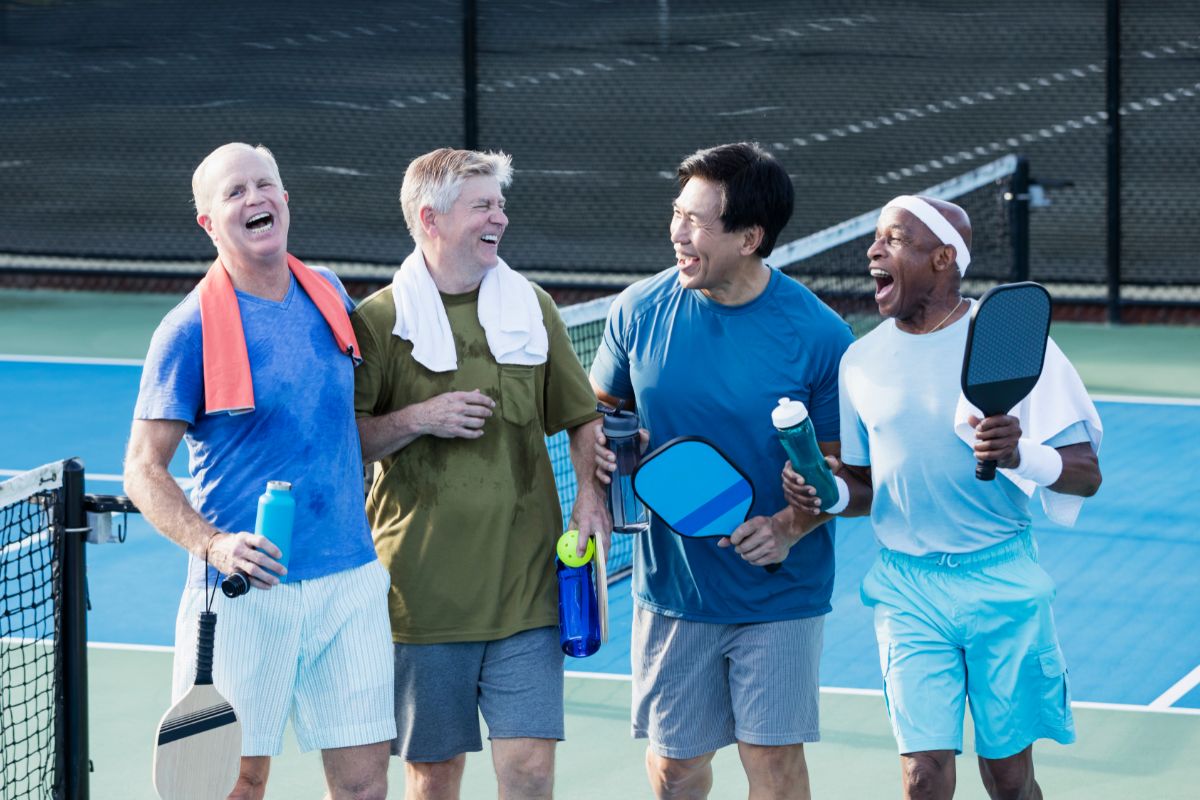
If you have ever watched a doubles game of tennis, you may have noticed that rather than shouting to each other mid-game, most players will instead whisper to their partner in between points.
Because of this, you will rarely hear tennis partners speak to each other as the game is going on, making it much quieter and more intense for us viewers.
This is much the same in pickleball where players can sometimes yell the odd command here and there, but most of the time, they will only speak between points or just before a serve so that they can know exactly what the strategy and plan is going into the rest of the game.
One of the reasons for why this happens in both tennis and pickleball (Check out Is Pickleball Easier Than Tennis?) is because they are sports that demand each and every player to remain focused at all times, however, this applies even more to pickleball where the court is barely half the size of a tennis court, meaning players need to be switched on whenever the ball is in play, and even when it’s not.
This makes it hard to register the flow and call out a command according to what your opponent is doing since the game moves at such a fast pace.
Additionally, unless you are playing doubles with a friend for the first time, most pickleball partners will have had some experience playing together in the past and will have a good knowledge of their partner’s strengths and weaknesses with some even rehearsing techniques beforehand, meaning after a certain amount of time together, they may not even need to use commands anymore.
What Are The Punishments For Distractions?
If the referee believes a player is intentionally trying to cause a distraction, whether this is from something they say, a physical distraction, or simply just shouting and yelling at the opposing player, then that player will have committed a fault.
It should also be noted that a “hindrance” is not the same as a distraction, and refers to a transient element or occurrence that is not caused by a player, such as insects disturbing a serve, loud noises from outside the court, or balls accidentally flying in from another court.
These are outside of the player’s control and therefore, will not be penalized and treated as a distraction.
What To Do If An Opponent Or Partner Is Distracting You?
If you feel that the opponent or your own partner is yelling and trying to distract you rather than trying to actually cooperate, the first thing to do is try and engage in a friendly conversation and let them know that you are uncomfortable with some of their actions in the game.
Players can sometimes cause a distraction unintentionally, for example some players will move erratically while the opponent is serving so that they can stay light on their feet, but they might not realize that they are actually throwing the opponent off.
If there is a player on the court who consistently tries to distract you and won’t stop, in the future, it can be worth steering clear of them so that you can actually enjoy your games.
Summary
While it can originally seem like the margin between communication and a distraction is very thin, and while some players can cause distractions without meaning to, as long as you stay within the boundaries of being respectful and as long as the callouts are relevant to the game at hand, then yelling to your opponent mid-match is completely legal.
If you ever do feel like your partner is distracting you though rather than trying to be helpful or cooperative, there’s never any harm in pulling them aside either after a point or once the game has ended so that they are aware of it.
- What Kind Of Ball Is Used In Pickleball? - July 13, 2023
- How Much Does It Cost To Build A Pickleball Court? - July 11, 2023
- When Do New Pickleball Rules Take Effect? - July 8, 2023

